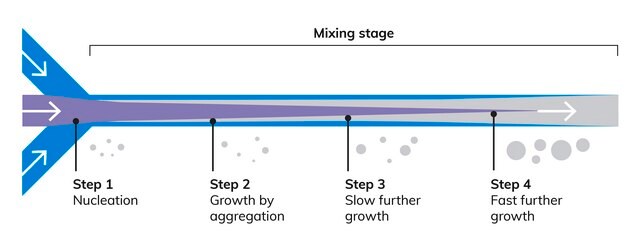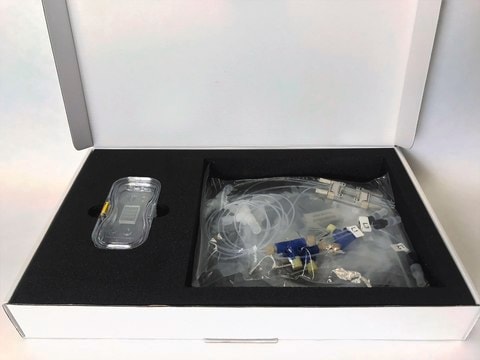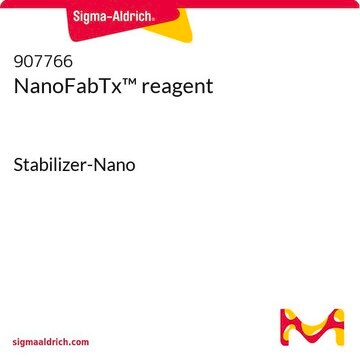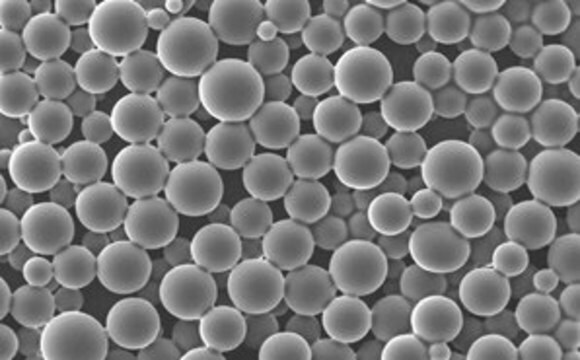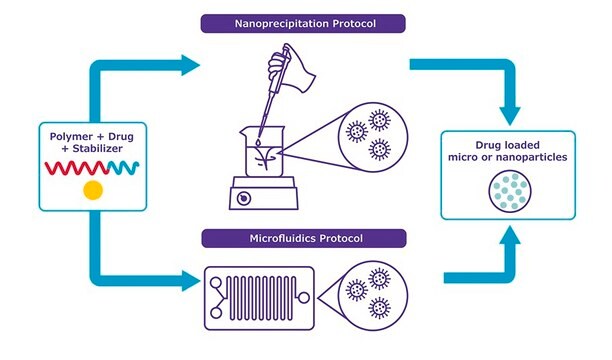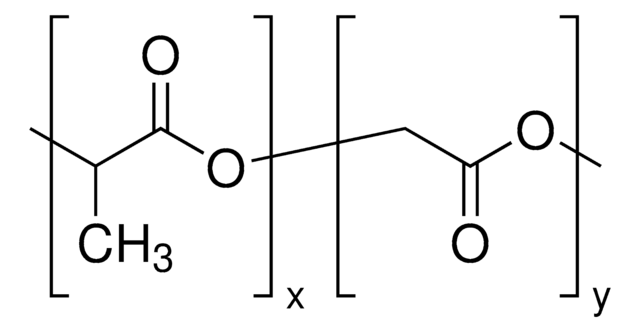917796
NanoFabTx™ PEG-PLGA drug formulation screening kit
for synthesis of PEGylated nanoparticles
Synonym(e):
NanoFabTx reagent kit, PEG-PLGA nanoparticles
About This Item
Empfohlene Produkte
Beschreibung
Drug loading screening kit, for synthesis of PEGylated PLGA nanoparticles
Kit components :
PEGPLGA-50L(912808-500mg)
PEGPLGA-75L(913049-500mg)
PEGPLGA-50H (915955-500mg)
PEGPLGA-75H (915718-500mg)
Stabilizer-Nano (907766-5g)
Qualitätsniveau
Anwendung(en)
advanced drug delivery
Lagertemp.
2-8°C
Allgemeine Beschreibung
- A Nanoprecipitation protocol to prepare drug-encapsulated nanoparticles in standard laboratory glassware.
- A Microfluidics protocol using commercial platforms or syringe pumps.
Anwendung
Leistungsmerkmale und Vorteile
- Requires minimal laboratory setup
- Optimized protocols with step-by-step instructions for either nanoprecipitation or microfluidics-based synthesis
- Yields specifically sized, low polydispersity biodegradable, PEGylated PLGA nanoparticles from 50 nm to 350 nm in size
- Maximizes the encapsulation of hydrophobic drugs
- Four different PEGylated PLGAs are included
Rechtliche Hinweise
Ähnliches Produkt
Lagerklassenschlüssel
10 - Combustible liquids
Hier finden Sie alle aktuellen Versionen:
Analysenzertifikate (COA)
Leider sind derzeit keine COAs für dieses Produkt online verfügbar.
Wenn Sie Hilfe benötigen, wenden Sie sich bitte an Kundensupport
Besitzen Sie dieses Produkt bereits?
In der Dokumentenbibliothek finden Sie die Dokumentation zu den Produkten, die Sie kürzlich erworben haben.
Artikel
Professor Robert K. Prud’homme introduces flash nanoprecipitation (FNP) for nanoparticle fabrication, which is a scalable, rapid mixing process for nanoparticle formulations.
Unser Team von Wissenschaftlern verfügt über Erfahrung in allen Forschungsbereichen einschließlich Life Science, Materialwissenschaften, chemischer Synthese, Chromatographie, Analytik und vielen mehr..
Setzen Sie sich mit dem technischen Dienst in Verbindung.